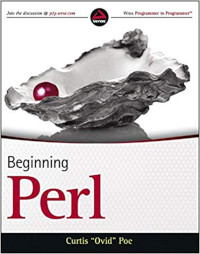Obviously, the title is hyperbolic. Not all black people hate white people’s dreadlocks, cornrows, or other stereotypically black hairstyles, but it’s trivial to hit your favorite search engine and read why black people get mad when white people have dreadlocks . This is a non-issue for many black people, but for others, they’re extremely passionate about it. Why?

A couple of years ago, I wrote elsewhere about this topic, but from a slightly different point of view. When white people strongly reject black culture, that’s racism. But when we admire parts of black culture and try to incorporate them, it’s cultural appropriation! Damned if we do, damned if we don’t. Worse, pointing out that some of the earliest depictions of dreadlocks are amost 6,000 years old, from the Minoan civilization in modern-day Greece can inflame the argument. Making that point often seems tone deaf to the issues the black person is concerned about.
Yet, that’s more or less the argument I made (this is from memory; details are probably off). While my (mostly white) friends generally seemed supportive of this point of view, a black friend of mine said something to the effect of “that’s what a white person would say.” They never responded when I asked what they meant. I really wanted to understand, but it didn’t happen that day.
Today, the Black Lives Matter movement has inserted itself strongly in US politics. Discussions of institutional racism, defunding the police, and similar matters are pervading the American consciousness again, in a way that perhaps wasn’t there since the Civil Rights Movement . Unsurprisingly, these topics are still terribly divisive. For some, these discussions are cause for them to double-down on their insistence that these issues are overblown. For others—myself included—these discussions have led down a rabbit hole of learning.

Unfortunately, the wording of some of these topics makes it even more confusing. For example, in one video when Ben Shapiro is asked about “institional racism”, he immediately demanded to know which [institution] is the racist one? . It’s a brilliant debating tactic, even if it is fundamentally dishonest. Institutional racism isn’t “that organization down the street hates black people.” Hell, it’s not even racism in the sense that most people think of it. Institutional racism is the result of fundamentally unequal outcomes experienced by different ethnic groups due to structural issues in society’s laws and culture. But that doesn’t roll off the tongue as easily as “institutional racism,” so people like Ben Shapiro nitpick the latter term and hope you won’t notice the bigger picture.
And don’t even get me started on the mess of the slogan “Defund the Police.” It was never about defunding the police and of course it gives many people the idea that we’re arguing for anarchy. For those who are disinclined to listen in the first place, messages like “defund the police” drive us apart instead of together. Even former president Barack Obama has warned against the phrase , to little effect.
Yet, in the face of the protests and the issues surrounding it, hair seems like a minor issue, right? Well, not it’s not minor for many black people. Chris Rock produced an entire documentary about the black experience with hair.
Simply put, black hair is often different. It’s often tightly curled and considerably more difficult to brush and style than white hair. There’s a culture around black hair and it’s strongly associated with black cultural identity. In 2014, when the US Army banned female soldiers from wearing cornrows, braids, twists and dreadlocks , they didn’t mention race, but it was clear it was about race. With the limited options that black people have to style their hair, the US Army decided to take those options away. Or there was the case of Vanessa VanDyke. Her school threatened to expel her because of her hair . It was natural. There were no cornrows, braids, twists, or dreadlocks. It was simply black hair.
Many black people can tell you stories about being told their hair is dirty, or unprofessional, or offensive. People use black hair as an excuse for discrimination. Black hair is “ugly.” And yet when white people wear traditionally back hairstyles, they’re “hip” or “cool.” Usually the grief they get seems to be from black people, not white. Why should white people get away with something black people aren’t allowed to get away with?
I still can’t say that I know what the right answer is here, but the wrong answer is to fail to understand why hair can be such a sensitive topic to black people. I had no idea.
But I think it’s even better summed up in this comment on Reddit .
There is a long history in the US of black folks being othered for their hairstyles. Braids, locs, natural afros, super tight curls, all these things have set black Americans apart from white Americans. Even though protective hairstyles like braids and locs are necessary to keep many black hair textures healthy, the look was different than white people and therefore “unprofessional” and unattractive. Only in the last few decades have we begun to undo this conditioning. If you want a way better and way more compelling explanation than mine, Chris Rock made a documentary called “Good Hair” to explain black American culture around hair and it’s fascinating.
Anyway, if you’re from a group who has been historically criticized for the way your hair grows out of your head and then see some white people being able to do the same thing with relatively no scrutiny, you’d be pissed too. Cultural appropriation is not simply borrowing things from other cultures, it’s borrowing them without acknowledging what it means to that culture. In the US, black othering and the existence of “good hair (white hair)” is much more relevant to our culture than Viking matting.


